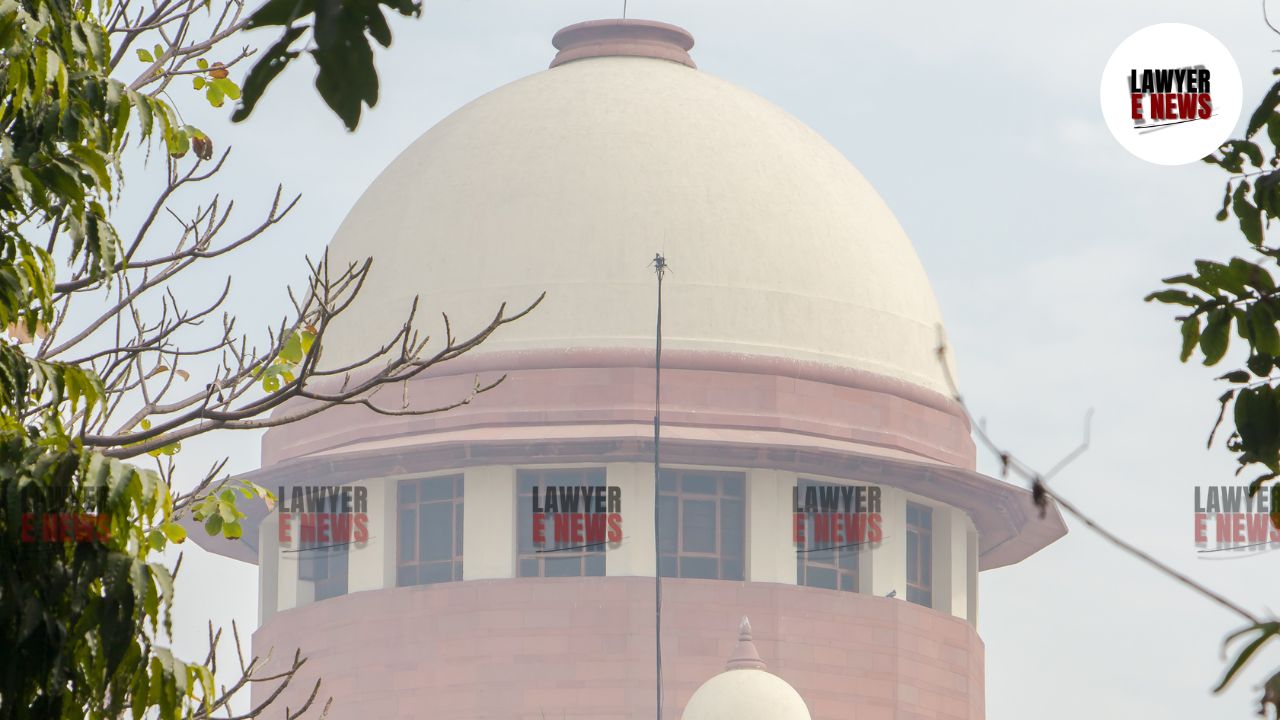-
by Admin
15 February 2026 2:36 AM



On November 8, 2024, a three-judge bench of the Supreme Court of India, comprising Chief Justice Dr. Dhananjaya Y. Chandrachud, Justice J.B. Pardiwala, and Justice Manoj Misra, delivered a landmark judgment in Rajive Raturi v. Union of India (Writ Petition (Civil) No. 243 of 2005). The Court held that Rule 15 of the Rights of Persons with Disabilities (RPWD) Rules, 2017, which prescribes accessibility standards for persons with disabilities (PWDs), is ultra vires the RPWD Act, 2016, due to its non-binding and recommendatory nature. The Court directed the Union Government to issue mandatory, enforceable accessibility rules within three months to ensure compliance with the RPWD Act’s mandate for accessible public spaces and services.
The writ petition was filed in 2005 by Rajive Raturi, a visually impaired individual, seeking the implementation of accessibility measures in public spaces to ensure equal participation for PWDs. Initially governed by the Persons with Disabilities (Equal Opportunities, Protection of Rights and Full Participation) Act, 1995, the legislative framework was updated with the enactment of the RPWD Act, 2016. Despite the 2016 Act’s provisions, compliance with accessibility standards remained inconsistent, prompting the Supreme Court to monitor implementation. In 2023, the Court appointed the Centre for Disability Studies at NALSAR University to conduct a comprehensive audit of accessibility across various sectors, leading to the current judgment.
1. Accessibility as a Right and Human Dignity
The Court underscored that accessibility is not merely a convenience but a fundamental human right that enables PWDs to exercise other rights, such as the rights to equality, freedom of movement, and dignity under Articles 14, 19, and 21 of the Constitution. Drawing from international frameworks like the United Nations Convention on the Rights of Persons with Disabilities (CRPD), the Court emphasized that accessibility is essential for independent living and societal participation for PWDs.
“Accessibility is not a standalone right; it is a prerequisite for PWDs to exercise other rights meaningfully.” [Para 43]
2. Social Model of Disability and Universal Design
The Court embraced the Social Model of Disability, which views disability as a result of societal barriers rather than individual impairments. In line with this approach, the Court emphasized the importance of "Universal Design"—designing products and environments usable by all people to the greatest extent possible, without needing specialized adaptations. This principle aligns with the RPWD Act’s mandate to make public spaces accessible from the outset, rather than relying on retrofitting existing structures.
“The goal of universal design is to create environments that are usable by everyone, irrespective of ability, age, or status.” [Para 30]
3. Rule 15 of the RPWD Rules Deemed Ultra Vires
The Court scrutinized Rule 15 of the RPWD Rules, 2017, which sets accessibility standards through guidelines issued by various ministries. Despite using the word “shall,” the Rule relies heavily on guidelines that are largely recommendatory and lack binding force. The Court held that Rule 15’s framework, which promotes voluntary compliance, contradicts the mandatory language and intent of the RPWD Act, particularly Sections 40, 44, 45, and 46, which require enforceable standards and prescribe penalties for non-compliance.
“Creating a minimum floor of accessibility cannot be left to the altar of ‘progressive realization’… Rule 15 is thus ultra vires the scheme and legislative intent of the RPWD Act.” [Para 75]
4. NALSAR-CDS Report Findings: Systemic Accessibility Deficiencies
The NALSAR-CDS report documented severe accessibility deficiencies across various sectors:
Courts and Prisons: Many High Courts lacked tactile guiding strips and interpreters, while district prisons were significantly underserved with inadequate mental health support.
Educational Institutions: Only 17% of students with disabilities had access to accessible learning materials, and there were barriers to basic services such as toilets and assemblies.
Employment: Inaccessible job portals and physical infrastructure hindered employment opportunities for PWDs, with attitudinal barriers compounding the problem.
Transport and Public Buildings: The study found uneven accessibility in public transport and buildings, limiting freedom of movement for PWDs.
These findings underscored the urgent need for a mandatory framework to standardize accessibility across public and private sectors.
Formulation of Mandatory Accessibility Rules: The Union Government is directed to formulate binding, enforceable accessibility rules within three months, as mandated by Section 40 of the RPWD Act. This exercise should segregate non-negotiable standards from broad guidelines currently in Rule 15, and must be carried out in consultation with stakeholders, including NALSAR-CDS.
Principles of Accessibility to Guide New Rules:
Universal Design: The rules must prioritize universal design principles to avoid the need for adaptations.
Inclusion Across Disabilities: Accessibility standards must cover all types of disabilities, including physical, sensory, intellectual, and psychosocial conditions.
Assistive Technology Integration: The rules should mandate the integration of assistive technologies, such as screen readers and accessible digital formats.
Stakeholder Consultation: Continuous engagement with disability organizations to incorporate lived experiences in policy-making.
Enforcement of Compliance Mechanisms: Once the new rules are in place, the Union, State Governments, and Union Territories are directed to enforce Sections 44, 45, 46, and 89 of the RPWD Act, which mandate penalties for non-compliance, including withholding completion certificates and imposing fines.
Compensation for NALSAR-CDS: The Union Government was directed to compensate NALSAR-CDS with INR 50,00,000 for their extensive work in preparing the accessibility report, to be paid by December 15, 2024.
Monitoring Compliance: The case is adjourned to March 7, 2025, with the Union Government required to report compliance with the Court’s directions.
This landmark judgment reaffirms accessibility as a fundamental right for PWDs and establishes a robust framework to enforce accessibility standards across India. By striking down Rule 15 as ultra vires, the Supreme Court has sent a strong message that accessibility for PWDs cannot be left to voluntary compliance or progressive realization. The mandatory rules that will replace the current guidelines are expected to significantly enhance the accessibility of public spaces and services, fostering a more inclusive society for persons with disabilities.
Date of Decision: November 8, 2024
